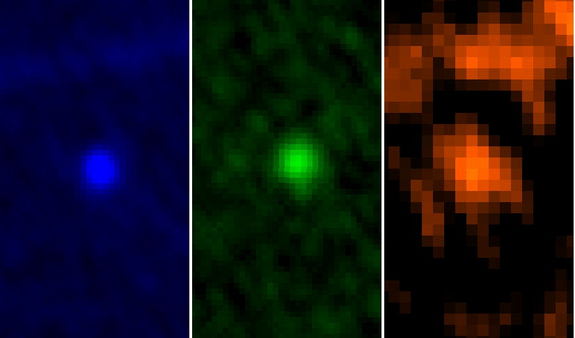Want to keep tabs on asteroid 2012 DA14 as it whizzes past Earth tomorrow (Feb. 15)? NASA TV and several online astronomy outlets will be tracking this asteroid as it makes its record-setting close shave. This marks the first time there has been an asteroid of this size passing this close that we’ve known a year beforehand. No, there’s no chance it will hit us, but it will come within 27,600 kilometers (17,150 miles) from the surface of the Earth, inside the ring of geosynchronous satellites girdling our planet Earth. It will closest to Earth at 2:25 p.m. EST (19:25 UTC).
Find out how you can watch on TV or online as this 50 meter- (164 feet-) wide space rock goes by:
(...)
Read the rest of Watch Live as Asteroid 2012 DA14 Whizzes Past Earth (374 words)
© nancy for Universe Today, 2013. |
Permalink |
No comment |
Post tags: Asteroid 2012 DA14, Asteroids, Live broadcasts, webcasts
Feed enhanced by Better Feed from Ozh
